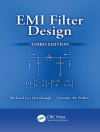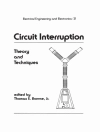This book provides a comprehensive overview of the energy policies in the European Union and Japan in terms of electricity markets and climate action, including energy efficiency, renewable energy sources, and the reduction of emissions. The book evaluates and compares the regulatory frameworks for achieving energy transitions by answering a number of questions focused on the essence and range of the regulatory models used by leading global economies which herald carbon neutrality by 2050. The book provides a useful framework that systematises Japanese and European energy policies and legislation including electricity-related policies, plans, and programmes. Discussing these issues in relation to the European and Japanese 2050 energy transition the author delves into the four pillars of the transition: market reform, reduction of emissions, promotion of renewables, and enhancing energy efficiency. Each chapter demonstrates the timing of the actions undertaken both in Europe and Japan; analyses the character of the conducted actions, evaluates the stakeholders of the realised agenda; and presents the technologies involved in the energy transition.
Tabela de Conteúdo
1: Introduction.- 2: Making the Electricity Market Work.- 3: Making the Electricity Sector Clean.- 4: Making Energy Sources Renewable.- 5: Making Energy Efficient.- 6: Making Energy Transition Just.- 7: Remaking: Conclusion.
Sobre o autor
Maciej M. Sokołowski holds a Ph D in law (
summa cum laude), with habilitation (Doctor of Science, DSc). He is currently a Visiting Researcher at the Meiji University in Tokyo, associated with the Faculty of Law and Administration at the University of Warsaw, Poland. He is an expert in the field of energy law and regulation of the energy sector, the author of two books on energy regulation as well as about 80 papers and reports on public law and energy policy.












